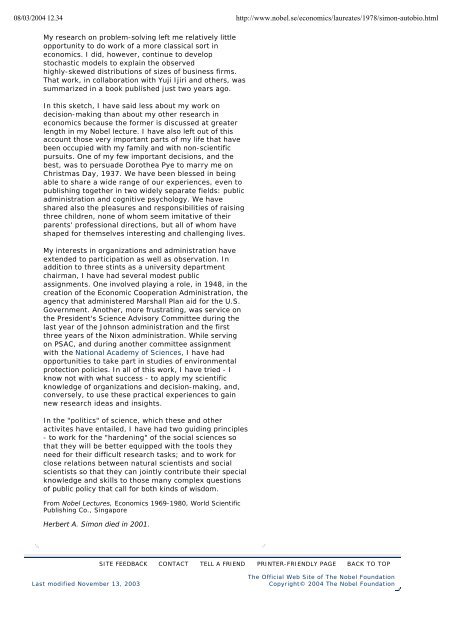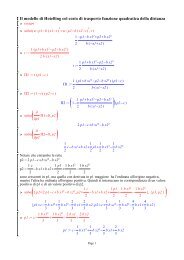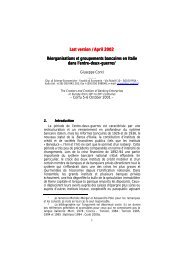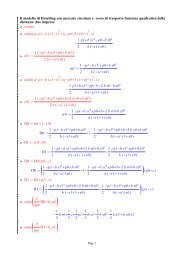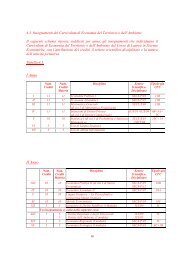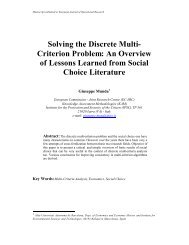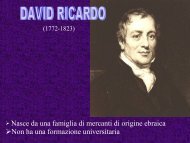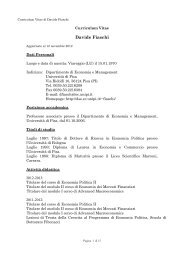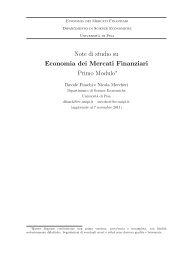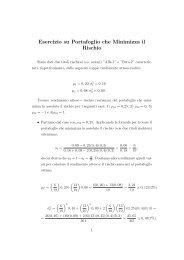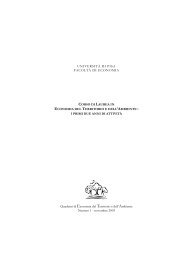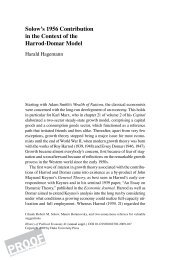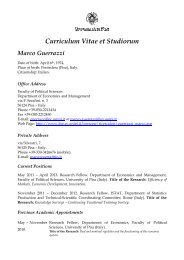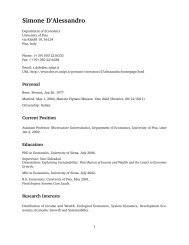Herbert A. Simon - Autobiography
Herbert A. Simon - Autobiography
Herbert A. Simon - Autobiography
You also want an ePaper? Increase the reach of your titles
YUMPU automatically turns print PDFs into web optimized ePapers that Google loves.
08/03/2004 12.34 http://www.nobel.se/economics/laureates/1978/simon-autobio.html<br />
My research on problem-solving left me relatively little<br />
opportunity to do work of a more classical sort in<br />
economics. I did, however, continue to develop<br />
stochastic models to explain the observed<br />
highly-skewed distributions of sizes of business firms.<br />
That work, in collaboration with Yuji Ijiri and others, was<br />
summarized in a book published just two years ago.<br />
In this sketch, I have said less about my work on<br />
decision-making than about my other research in<br />
economics because the former is discussed at greater<br />
length in my Nobel lecture. I have also left out of this<br />
account those very important parts of my life that have<br />
been occupied with my family and with non-scientific<br />
pursuits. One of my few important decisions, and the<br />
best, was to persuade Dorothea Pye to marry me on<br />
Christmas Day, 1937. We have been blessed in being<br />
able to share a wide range of our experiences, even to<br />
publishing together in two widely separate fields: public<br />
administration and cognitive psychology. We have<br />
shared also the pleasures and responsibilities of raising<br />
three children, none of whom seem imitative of their<br />
parents' professional directions, but all of whom have<br />
shaped for themselves interesting and challenging lives.<br />
My interests in organizations and administration have<br />
extended to participation as well as observation. In<br />
addition to three stints as a university department<br />
chairman, I have had several modest public<br />
assignments. One involved playing a role, in 1948, in the<br />
creation of the Economic Cooperation Administration, the<br />
agency that administered Marshall Plan aid for the U.S.<br />
Government. Another, more frustrating, was service on<br />
the President's Science Advisory Committee during the<br />
last year of the Johnson administration and the first<br />
three years of the Nixon administration. While serving<br />
on PSAC, and during another committee assignment<br />
with the National Academy of Sciences, I have had<br />
opportunities to take part in studies of environmental<br />
protection policies. In all of this work, I have tried - I<br />
know not with what success - to apply my scientific<br />
knowledge of organizations and decision-making, and,<br />
conversely, to use these practical experiences to gain<br />
new research ideas and insights.<br />
In the "politics" of science, which these and other<br />
activites have entailed, I have had two guiding principles<br />
- to work for the "hardening" of the social sciences so<br />
that they will be better equipped with the tools they<br />
need for their difficult research tasks; and to work for<br />
close relations between natural scientists and social<br />
scientists so that they can jointly contribute their special<br />
knowledge and skills to those many complex questions<br />
of public policy that call for both kinds of wisdom.<br />
From Nobel Lectures, Economics 1969-1980, World Scientific<br />
Publishing Co., Singapore<br />
<strong>Herbert</strong> A. <strong>Simon</strong> died in 2001.<br />
SITE FEEDBACK CONTACT TELL A FRIEND PRINTER-FRIENDLY PAGE BACK TO TOP<br />
Last modified November 13, 2003<br />
The Official Web Site of The Nobel Foundation<br />
Copyright© 2004 The Nobel Foundation


